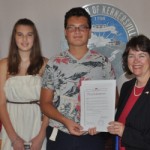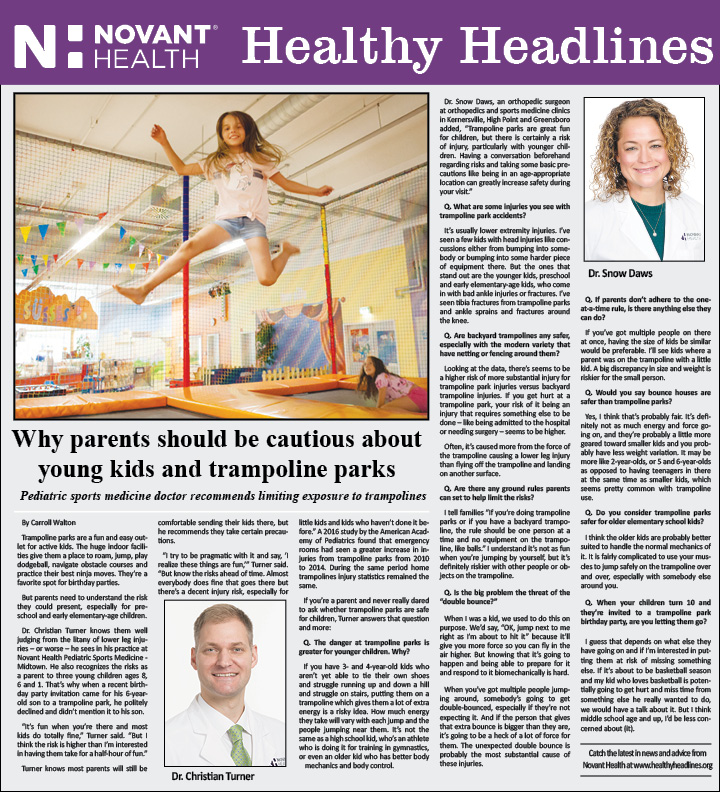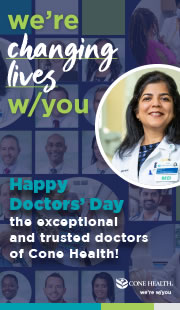 The Auchmuty family, founders of Decoding Dyslexia (DD), work to raise awareness about dyslexia. The family was presented with a proclamation that designates October as Dyslexia Awareness Month by Mayor Dawn Morgan and Governor Pat McCrory.
The Auchmuty family, founders of Decoding Dyslexia (DD), work to raise awareness about dyslexia. The family was presented with a proclamation that designates October as Dyslexia Awareness Month by Mayor Dawn Morgan and Governor Pat McCrory.
According to the International Dyslexia Association, dyslexia is a language-based learning disability and refers to a cluster of symptoms, which result in people having difficulties with specific language skills, particularly reading. Students with dyslexia usually experience difficulties with other language skills such as spelling, writing and pronouncing words. Dyslexia affects individuals throughout their lives; however, its impact can change at different stages in a person’s life. It is referred to as a learning disability because dyslexia can make it difficult for a student to succeed academically in the typical instructional environment, and in its more severe forms, will qualify a student for special education, special accommodations, or extra support services.
Since first finding out their son, Payne, had dyslexia, Penny and Neil Auchmuty have been fighting and working hard to find him the help he needs.
Neil and Penny first noticed there was something different about Payne when he was about seven-years-old. They explained that Payne has always been smart, but they had a heightened concern when they noticed he wasn’t doing well in school.
In the second grade at the time, Penny and Neil tried to address Payne’s issue; however, they ran into a roadblock, which caused them to start DD.
Neil said DD first started in N.J. with a group of parents who got together to discuss what was going on in their children’s schools. He said they decided to put together a handbook for parents in other states to start a grassroots movement.
“(DD) is parent-led and parent-driven,” he said. “Through Decoding Dyslexia, parents share ideas about how to get the help they need for their children.”
Payne explained what it’s like to have dyslexia.
“It makes it a lot more difficult to answer questions out loud in front of people or reading out loud, and I have a hard time organizing my thoughts,” he said.
Neil added, “Dyslexia is a spectrum disorder, so some people are very mild and others are more severe. Most people recognize it as reading letters backwards, but that’s just the small, well-known piece of it.”
Penny said 10-15 percent of students are dyslexic.
“We need to talk more about it, and with help of legislation, we can get help in our schools,” she said. “The big problem is that you can’t see it, so it’s hard to believe there is an issue.”
Neil said one of the reasons it is such a struggle for students with dyslexia to get help is because dyslexia is so varied. It can be difficult for schools to pinpoint that a student suffers from it, and because their IQ is always average or above average it makes it even more confusing.
Penny and Neil said there have been attempts made at various levels of government (state and federal) to help students with dyslexia. Two of those bills include NC House Bill No. 420 and NC Senate Bill No. 439. Those bills were shot down, Penny noted.
“They introduced these bills this year, but they didn’t go anywhere,” Penny said. “North Carolina Representatives (Debra) Conrad and (Donny) Lambeth were the primary sponsors of Bill No. 420 and North Carolina Senator Paul A. Lowe, Jr. was the primary sponsor of Bill No. 439. All sponsors on the bills were from Forsyth County. We would like to see the bills broken up a bit, but ultimately, it’s up to legislation.”
Although the bills were shot down, Penny and Neil encourage families to speak out.
“You can call your state representatives and share the story about your children in public schools dealing with dyslexia,” Penny said.
Although help specific to dyslexia has not yet made its way into the school system, Neil and Penny have found ways to help their son.
“We worked hard to get him an IEP in school and getting him accommodations, such as extra time, not being graded on spelling, reading quizzes and tests to him orally, and small group activities,” shared Penny. “We also used an Orton-Gillingham tutoring program. It’s a multi-sensory program.”
Penny said Neil and Payne will be attending Parent Camp USA in Washington, D.C. on October 26 at the U.S. Department of Education, which will bring together administrators, teachers, parents and students to talk face-to-face about what works best for kids with dyslexia. Although registration is closed, Penny noted that you can sign up online at www.parentcampusa.weebly.com to watch the event.
Payne is also doing his part to raise awareness by having participated in a dyslexia awareness video that was put together by Dyslexia Buddies Network’s Founding Mama Bear, Kristin Paxton, and the creator of the film, “Embracing Dyslexia,” by Luis Macias.
The video can be found by searching, “What I wish teachers knew about dyslexia” on YouTube.
“It was debuted at the Everyone Reading Illinois Conference on Tuesday to help spread dyslexia awareness and was shown to 300 teachers,” Penny remarked.
Neil and Penny have also contacted Winston-Salem/Forsyth County School principals.
“We shared the dyslexia awareness month proclamations and asked if they would help to spread dyslexia awareness, and some have,” Penny said. “Southeast Middle School has posted it on their roadside sign and Glenn High School has posted it on their website.”
Penny and Neil said they have also trained to become Augustine Literacy Project tutors through Read-Write-Spell (ReadWS) so they can help tutor students in schools.
Penny also encourages parents to become trained as an IEP (Individual Education Plan) partner through N.C.’s ECAC at www.ecac-parentcenter.org (Parent Training and Info Center tab and click on IEP Partners).
“This is a way for parents wanting to make a different to get involved,” Penny remarked.
For more information or to find useful resources, visit one of the following sites: North Carolina’s Exceptional Children’s Assistance Center: www.ecac-parentcenter.org; Dyslexia Advantage: www.community.dyslexicadvantage.org; International Dyslexia Association: www.eida.org; Dyslexia Training Institute: www.dyslexiatraininginstitute.org; Eye To Eye: www.eyetoeyenational.org; The Yale Center for Dyslexia & Creativity: www.dyslexia.yale.edu; Bright Solutions for Dyslexia: www.dys-add.com; Headstrong Nation: www.headstrongnation.org; National Center for Learning Disabilities: www.ncld.org; and Understood: www.understood.org/en.
Decoding Dyslexia
Previous post: Food Truck Festival
Next post: Next Post









